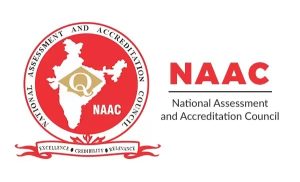The Centre for Transnational Commercial Law, National Law University, Delhi, organized MHRD GIAN course on “Cross-Border Business Law and Practice” under the GIAN scheme of the MHRD, from 10- 23 October 2016. The course received an overwhelming response and was attended by 60 participants, including both students from National Law University, Delhi, and external participants which consisted of law professors, practitioners, Ph.D. candidates and students of law from various National Law Universities, and other prominent law institutions across India.
About the course
Arguably the single most noticeable development in the last 40 years in economic terms is globalization, which has naturally increased the importance of cross-border trade. These developments have contributed greatly to the internationalization of trade. Ernst Rabel commenced the debates regarding the introduction of a worldwide uniform sales law. Private international law was considered to be complicated, abstract and had the reputation of being the “nuclear physics of jurisprudence.”
Whenever parties enter into contracts the correct choice of law is crucial. It determines the legal relationship as it is impossible for parties to negotiate every point. It is obvious that a party, if given the choice and being the dominant partner in the negotiations, will choose its own law. The familiarity argument is often quoted to justify such a choice. If on the other hand the two parties are evenly matched, much time and energy could be saved by simply agreeing not on a neutral law but a unified law such as the CISG.
What then is the difference between “contract law” and “contract practice”? It is implicit in the description that contract law is tied to a system of law based on a national or domestic body of law. Through that particular municipal system, contract law would have evolved based on known and understood principles. However, contract practices are looking beyond a legal system and the law in general. Practices transcend legal, social and economic thoughts and processes and have become universal. That is, they are common elements, which transcend borders. It might be argued that, once contract practices have been identified, an international law can be put into practice.
The application of a unified law to cross-border transactions is economically sound and produces superior results compared with the application of domestic law. These issues have now come to fruition with the creation of international unified laws in the form of various treaties, conventions and model laws, which are sought to be discussed in this short course.
The specific areas covered in the course, while not exhaustive, were sufficient to provide participants with a good understanding of Cross- Border Business Law and Practice. Additionally, the course materials include numerous cases from diverse legal jurisdictions, arbitral awards, decisions and hypothetical discussion problems. The program contents also are consistent with the course objectives of familiarizing participants with case law analysis from various judicial bodies and jurisdictions outside India.
The course was instructed by Professor Dr. Bruno Zeller
Professor Bruno Zeller is a Professor of Transnational Commercial Law at the University of Western Australia. He is also an Adjunct Professor at Murdoch University, Perth, a Fellow of the Australian Institute for Commercial Arbitration, Panel of Arbitrators – MLAANZ, Visiting Professor Institut fur Anwaltsrecht, Humboldt University, Berlin and a Visiting Professor Stetson Law School, Florida. He holds a Ph.D. from The University of Melbourne, Master of International Trade Law from Deakin University, B.Com and B. Ed from The University of Melbourne. His areas of expertise are International Trade Law, International Arbitration, Conflict of Laws and Maritime Law. He has published extensively on the CISG, arbitration law, harmonisation of contract law and carbon Trading.
He is involved in mooting with a passion to train and prepare teams of students to participate in the Willem C. Vis International Commercial Arbitration Moot in Vienna. Dr Zeller has been invited to participate as an arbitrator at the Vis International Moot in Vienna and Vis East Moot in Hong Kong and has been recognised as a significant contributor in the area of International Uniform laws, e-commerce and the methodology of interpretation of uniform international instruments.
He is actively involved in research in the areas of international private law and dispute resolution and has published extensively, with international recognition and quoted by leading academics as contributing to the stock of knowledge on international uniform sales laws. Most of his articles are comparative in nature where domestic principles of contract law are compared and analysed with international unified laws and restatements of contract law such as the UNIDROIT principles. His articles have been quoted in a submission to the Supreme Court of the United States.
Research Interests: Cross Border Business Law, Maritime Law, Conflict of Laws
Local GIAN Coordinator
Professor Dr. G. S. Bajpai,
Professor & Registrar, National Law University, Delhi
Host Faculty & Course Coordinator
Dr. Risham Garg, Assistant Professor & Research Director, Centre for Transnational Commercial Law, NLU Delhi.
Dr. Risham Garg holds a Doctor of Laws (LL.D.), in the field of International Contracts. He teaches courses on ‘Bankruptcy Insolvency & Restructuring’ and ‘International Commercial Laws’ in the LLM programme, he also teaches Seminar and Core courses in the BA.LLB. program on Law of Contracts, Sale of Goods. He acts as an Arbitrator at the Willem C. Vis Moot. He has been a Visiting Research Scholar at UNCITRAL, Vienna. Since February 2016, he has also been placed in charge, as Research Director, of the Centre for Transnational Commercial Law (CTCL) at NLU Delhi.
The 2-weeks course covered around 25 lectures with an evaluation at the last day. The course elicited positive feedback from participants. Prof. Zeller also distributed the Participation certificates to the course participants. Prof. Zeller also addressed students of the BALLB 1st year in their contracts class.





